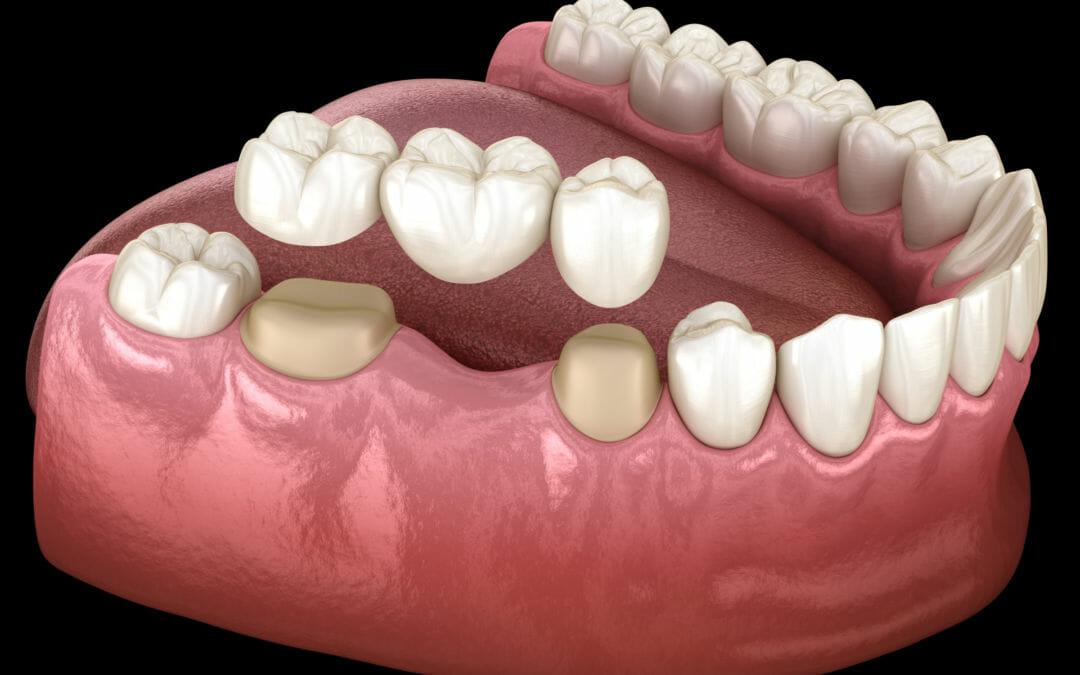Do you find yourself covering your mouth when you smile or avoiding social situations because of missing teeth? Dental bridges can help you regain your confidence and show off your pearly whites. They are an effective solution to replace missing teeth, making them a popular choice among people of all ages. But before you take the plunge, it’s important to know everything about dental bridges – the types available, their benefits & risks, and how they compare to dental implants. In this blog, we’ll cover all the nitty-gritty details of dental bridges that you need to know before deciding if they’re right for you. So keep reading to learn about the types and care for dental bridges so that you can make an informed decision and get back to smiling with full confidence.
Types Of Dental Bridges
Replacing missing teeth with natural-looking artificial teeth is important for good oral hygiene. Dental bridges come in different types like traditional, cantilever, Maryland, and implant-supported bridges. A traditional bridge consists of a false tooth held in place by dental crowns on either side while cantilever bridges have only one crown anchoring the pontic. Maryland bridges bond porcelain or metal wings to adjacent teeth and implant-supported ones use implants as anchors.
Dental Bridge Vs. Dental Implant
When it comes to replacing missing teeth, dental bridges, and dental implants are two common options. While bridges are less invasive and a more affordable option compared to implants, they may not offer the same long-term success rates as implants. For those looking for a quick solution with fewer appointments, bridges may be a good option. However, those seeking a permanent solution and willing to undergo surgery should consider dental implants.
Should You Get A Dental Bridge?
If you have missing teeth, a dental bridge may be worth considering for improved oral health, speech, and chewing. However, it is essential to maintain proper oral hygiene as bridges are permanent and require upkeep. Consult with your dentist to determine if this solution is right for you.
Benefits Of Dental Bridges
Bridges help restore natural teeth with porcelain and artificial teeth like crowns on either side of the gap held in place by abutment teeth. Dental bridges are a permanent solution that requires good oral hygiene to maintain. You should consider getting a bridge to avoid complications from tooth decay or gum disease. With good hygiene and regular visits to your dentist or hygienist, you can enjoy the lasting benefits of dental bridges.
Getting A Dental Bridge
Replacing missing teeth with a dental bridge involves preparing the surrounding teeth and taking impressions. Dental bridges can be traditional or implant-supported. Proper care ensures long-lasting results. Missing teeth can lead to complications such as gum disease and tooth decay. Consult your dentist to determine the type of bridge best suited for you.
Traditional Or Cantilever Bridge
Dental bridges are available in different types, which include traditional and cantilever bridges. Traditional bridges require two abutment teeth on either side of the gap while cantilever bridges need just one abutment tooth. Healthy adjacent teeth are crucial for supporting both types of dental bridges and ensuring proper functionality. These prosthetics restore natural-looking teeth that help improve speech and chewing abilities in individuals with missing teeth.
Maryland Bridge
A Maryland bridge is made of porcelain or ceramic and is attached to surrounding teeth using resin. This minimally invasive option replaces missing teeth without grinding down adjacent ones. Good oral hygiene is important to maintain longevity. Consult with your dentist to see if a Maryland bridge can replace your missing tooth without complications like plaque buildup or gum disease.
Implant-Supported Bridge
With implant-supported bridges, you get a more stable and durable solution compared to traditional bridges. This procedure involves surgically placing implants into your jawbone to support the bridge, providing a natural-looking smile that prevents bone loss in your jaw. Proper care can ensure that this permanent solution lasts for many years.
What Are the Types of Dental Bridges?
There are three types of dental bridges: traditional, cantilever, and Maryland. Traditional bridges involve crowns on either side of the missing tooth, while cantilever bridges use one adjacent tooth for support. Maryland bridges use a framework bonded to adjacent teeth, offering a more conservative option.
How Do Dental Bridges Compare To Dental Implants?
When it comes to dental bridges vs. implants, bridges are a more economical choice and can be completed quicker, but implants have a higher success rate and longer lifespan. The decision between the two depends on individual factors like budget, oral health, and preference for a permanent or removable option.
What Are The Risks Of Dental Bridges?
While dental bridges can provide a solution for missing teeth, there are some risks involved. These include tooth decay, gum disease, and potential damage to nearby teeth. Poor oral hygiene can increase these risks, and allergic reactions to materials used in the bridge are possible. However, with proper care and maintenance, the risks can be significantly reduced.
How Do I Care for My Dental Bridge?
To maintain your dental bridge, brush it gently twice a day with a soft-bristled toothbrush. Use floss threaders or interdental brushes to clean around the bridge, and avoid hard or sticky foods that could damage it. Regular dental check-ups and cleanings are also important for overall oral health.
Conclusion
Dental bridges are a great way to restore your smile and regain confidence. They can be a long-term solution to missing teeth, with different types available depending on your needs and preferences. It’s best to consult with your dentist to determine whether a dental bridge is right for you based on your situation. If you do decide to get a dental bridge, be sure to follow the necessary dietary changes and care instructions provided by your dentist. For answers to commonly asked questions about dental bridges contact us today at Eastgate Dental Excellence.

